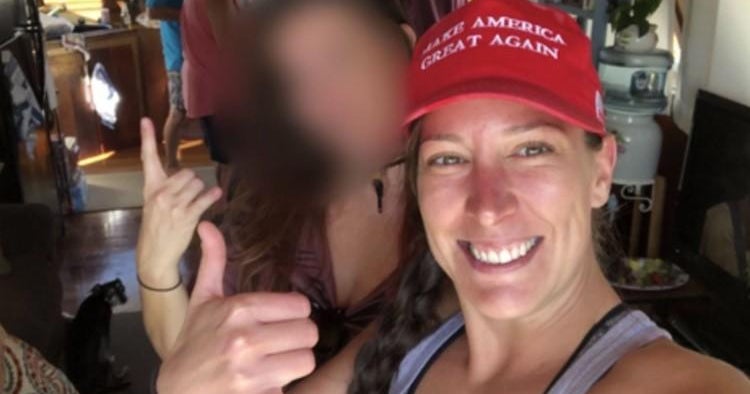The Trump administration successfully negotiated a settlement with the family of Ashli Babbitt, a fervent Trump supporter who tragically lost her life during the tension-filled breach of the House Speaker’s Lobby on January 6, 2021. Sources familiar with the matter informed CBS News that while the settlement has been agreed upon in principle, it has yet to be officially signed. During a court session held on Friday, the attorney representing the plaintiff confirmed that the parties had reached this provisional agreement, a development poised to preemptively end the trial and any further legal processes linked to a $30 million civil lawsuit. This suit was initiated by the conservative activist group Judicial Watch on behalf of Babbitt’s estate, which includes her bereaved husband.
Ashli Babbitt’s death has since become a central figure and rallying cry amongst Trump supporters and participants of the Capitol riots, many of whom argue that the police response on January 6 was unnecessarily forceful. The civil lawsuit specifically targets U.S. Capitol Police Lt. Michael Byrd, accusing him of negligence concerning his use of force and firearm. Further claims within the lawsuit assert that Byrd was not in uniform and obscured his identity by wearing a COVID mask during the moment he discharged his weapon at Babbitt. The suit criticizes Byrd’s failure to utilize de-escalation tactics.
The filing starkly notes, “Ashli was unarmed. Her hands were up in the air, empty, and in plain view of Lt. Byrd and other officers in the lobby. Ashli posed no threat to the safety of anyone.”
Originally filed in California, the case was later transferred to federal court in Washington, D.C., in 2024 and was defended by the Justice Department under the Biden administration. In a significant 2024 court document, the Justice Department contended, “Ms. Babbitt unlawfully entered the Capitol. She advanced to the east doors of the Speaker’s Lobby situated immediately behind the Chamber of the U.S. House of Representatives— the site designated for Joint Sessions of Congress. Despite officers having secured the Speaker’s Lobby doors with substantial furniture, demonstrators managed to break through the glass panels of the lobby doors and adjacent windows.”
The document detailed that Lt. Michael Byrd, holding a position on the opposite side of those doors, acted when Babbitt, carrying a backpack, attempted to climb through one of the broken sidelights into the Speaker’s Lobby, leading to the fatal shot. An internal review by the U.S. Capitol Police concluded in August 2021 defended Lt. Byrd’s actions as life-preserving and found no misconduct. The review underscored, “The officer’s actions potentially saved Members and staff from serious injury and possible death from the large crowd of rioters who had broken into the U.S. Capitol, advancing towards the House Chamber where Members and staff were steps away.”
The intense scrutiny and threats directed towards Byrd and his family following the incident were acknowledged, highlighting the threats as a byproduct of his duties, which involved defending Congress, its members, staff, and the democratic process.
On-the-ground footage from January 6 vividly shows Babbitt, part of the aggressive group, attempting to climb through a shattered window into the Speaker’s Lobby, a critical scene of activity as the electoral vote tallying had been interrupted due to the unfolding chaos. Members of Congress were in the process of being evacuated from the area at the time of her attempting breach.
Babbitt’s mother, Micki Wittehoff, has since become a prominent figure advocating on behalf of those facing charges from their involvement in the U.S. Capitol riot. Her tireless campaigning outside the Washington, D.C., jail garnered her audience with figures such as then-House Speaker Kevin McCarthy and even references by President Trump himself. Her efforts also facilitated an opportune photo with Kash Patel, who was later confirmed as the FBI Director.
During the final moments of his administration, the president controversially pardoned over 1,500 individuals linked to the Capitol riots. This sweeping pardon drew significant backlash and was seen by some observers as an effort to distort the historical account of that fateful day. Brendan Ballou, a former prosecutor for the January 6 cases who resigned after Trump’s re-entrance into office, voiced concerns to CBS News regarding this rewriting of history. He stressed that numerous politicians now base their careers on the public’s amnesia concerning January 6, as a vivid recollection of those events would starkly highlight their continued support for a leader accused of provoking an insurrection and disrupting the peaceful transfer of power. This concerted push for historical whitewashing, according to Ballou, includes the firing of seasoned prosecutors handling the January 6 cases.
Through this narrative, the anguish and polarizing repercussions of January 6, 2021, echo throughout the political and judicial corridors of America, intertwining issues of security, accountability, and the unnerving specter of civil unrest tied with political ideologies.









